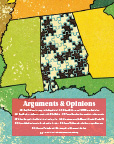Focusing on the Fine Print
Florencia Marotta-Wurgler’s groundbreaking research on consumer contracts.
Printer Friendly VersionThe vast majority of contracts these days are standard-form contracts, drafted by one party and offered to the other “as is.” Consumers encounter them every day when doing things like renting cars, purchasing cell-phone service, buying movie tickets online, or downloading software.
Until recently, discussion of standard-form contracts has largely been shaped by scholars’ conflicting theoretical views and anecdotal evidence. Should the law mandate certain types of disclosure? Do sellers take advantage, assuming most people don’t read the boilerplate? But now, pioneering research by Professor of Law Florencia Marotta-Wurgler ’01 has begun to transform the debate. From collecting and analyzing data on thousands of software purchases—each requiring the consumer to agree to an end-user licensing agreement—Marotta-Wurgler has produced a new empirical foundation for legal and policy discussion.
In December, the Hebrew University of Jerusalem organized a conference devoted to Marotta-Wurgler’s scholarship, focusing on nine papers that she and NYU Law student co-authors published between 2005 and 2014. In a forthcoming article in the Jerusalem Review of Legal Studies, Eyal Zamir and Yuval Farkash of the Hebrew University call her work “arguably the most important contribution to contract law theory in the past decade.”
After the conference, Michael Orey, director of public affairs, asked Marotta-Wurgler about her work.
How would you describe the papers that were the focus of the conference? The papers take different looks at some commonly held beliefs about mechanisms internalizing buyers’ preferences that might or might not be at work in the standard-form contract setting. Standard-form contracts are a unique type of creature, and they pose a lot of challenges—because if you start thinking about what a contract is, it’s based on the idea that people voluntarily enter into mutually beneficial agreements. Usually when there’s haggling and negotiating, because you’re actually negotiating the terms of the deal, it becomes more likely that you know what it is you are getting into and that you are entering deals that you find beneficial. But standard-form contracts are offered in a take-it-or-leave-it fashion, so this idea of becoming informed while negotiating goes away. This can create a number of problems. My research examines whether some of the mechanisms believed to alleviate the problems stemming from lack of information are working.
Isn’t that where we look to disclosure, to make sure the consumer understands the terms of the bargain? Yes, but then there’s this wrinkle of “What if nobody reads the fine print?” Disclosure is great in theory because, unlike direct regulation of terms, it preserves consumer choice. In two papers, I sought to examine disclosure’s effectiveness in practice. In looking at the shopping behavior of almost 50,000 potential buyers of software online, I found that making contracts more prominently available did not increase readership in any significant way. The conclusion is that, at least in this context, disclosure is great in theory but a complete failure in practice. Maybe it’s time to move on to something else.
Does anyone read the fine print? When you read court opinions and sometimes when you read academic articles, there’s always this hope that there’s a critical mass of consumers that will read. I wanted to test it in the market that I knew about: software. And what we found was that only one in 1,000 consumers access the license agreement—which is almost no one—and that most of those who do access it read no more than a small portion.
Why software contracts? Software contracts were really pushing the envelope when it came to ways of presenting forms to consumers. Many of them were shrink-wrap contracts that you don’t even get to see until after you’ve paid for the product and opened the package—so that created a huge uproar, because how can we have an informed minority of buyers policing the market when we have to buy the product in order to access the terms? A widely held concern that sellers would take advantage and include more onerous terms in these hidden contracts stalled several attempts to create model rules to govern transactions involving information goods. I decided to test empirically whether this was indeed the case. Using a sample of over 500 software contracts, I found that contracts available post-purchase were no worse than those that were made available pre-purchase. The implication is that, to the extent that there are inefficiencies associated with standard- form contracts, they are not made worse by delayed disclosure.
So your research doesn’t support the “informed minority” argument? It doesn’t appear to hold water—not in this market. The existence of the informed minority has generally been given as an important reason to avoid regulation of many consumer contracts. My paper “Does Anyone Read the Fine Print?” in the Journal of Legal Studies calls for more nuanced analysis of its existence in other contexts, as that might affect the quality of terms that consumers are offered.
In the course of doing this research, was there anything that surprised you? Many times as academics and as lawyers we have the sense that the sellers or some parties are out to get each other all the time. And what I found is that’s usually not the way many people think, particularly small businesses. Sometimes you forget that there are human beings involved who actually have some pride in what they do, and they’re not out there to get the absolute last thing they can squeeze out of their contracts.
This interview was edited and condensed.
—
Related Links
The nine papers that were the focus of the Hebrew University conference on Marotta-Wurgler’s scholarship, as well as the article by Zamir and Farrkash assessing her work, will be published in a forthcoming issue of the Jerusalem Review of Legal Studies. Read the articles now on SSRN:
“Are ‘Pay Now, Terms Later’ Contracts Worse for Buyers? Evidence from Software License Agreements”
“What’s in a Standard Form Contract? An Empirical Analysis of Software License Agreement”
“‘Unfair’ Dispute Resolution Clauses: Much Ado About Nothing?”
“Set in Stone? Change and Innovation in Consumer Standard-Form Contracts”
Does Anyone Read the Fine Print? Consumer Attention to Standard Form Contracts”
“Even More Than You Wanted to Know About the Failures of Disclosure”
—


 Multimedia
Multimedia